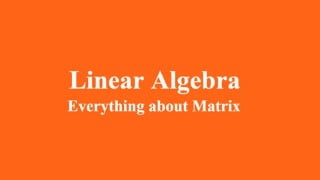Abstract Algebra: Introduction to Group Theory
Learn the fundamentals of Group Theory with this comprehensive course. Explore basic notions in Set Theory, properties of groups, subgroups, and more. Perfect for undergraduate students seeking a clear and easy-to-understand introduction to this branch of abstract algebra. Boost your understanding of algebraic structures and their applications in various fields like physics, chemistry, and cryptography. Start your journey into Group Theory today!
What you’ll learn
- Basic notions in Set Theory including relations, equivalence relations, partitions of sets
- maps, and their compositions, permutations
- Binary operations, mathematical systems, the definition of a group, properties of groups
- Subgroups, generating subgroups, and normal subgroups
- Cosets of subgroups, Lagrange’s Theorem, Sylow Theorems, Quotient groups
- Homomorphisms, isomorphisms, and automorphisms of groups
Group theory is a branch of abstract algebra that studies the algebraic structures known as groups. This theory is central to abstract algebra: other well-known algebraic structures, such as rings, fields, and modules, can all be seen as groups endowed with additional operations and axioms. Many physical systems, such as crystals, can be modeled by symmetric groups. Group theory has many vital applications in physics, chemistry, and materials science. Group theory is also central to public-key cryptography.
Group Theory has applications in other areas of mathematics such as Galois Theory where it is shown that the result that S_5, the symmetric group in five elements, is not solvable, implies that the general quintic equation cannot be solved by radicals in the way equations of lower degree can.
This course is to give an introduction to Group Theory. It covers the following topics:
1. Basic notions in Set Theory including relations, equivalence relations, partitions of sets, maps, and their compositions, permutations
2. Binary operations, mathematical systems, the definition of a group, properties of groups
3. Subgroups, generating subgroups, and normal subgroups
4. Cosets of subgroups, Lagrange’s Theorem, Sylow Theorems, Quotient groups
5. Homomorphisms, isomorphisms, and automorphisms of groups
The course is taught in a way that can be understood easily.
Who this course is for:
- Undergraduate students
User Reviews
Be the first to review “Abstract Algebra: Introduction to Group Theory”
You must be logged in to post a review.







There are no reviews yet.